University of Wroclaw | Erasmus staff | INTERNATIONAL STAFF
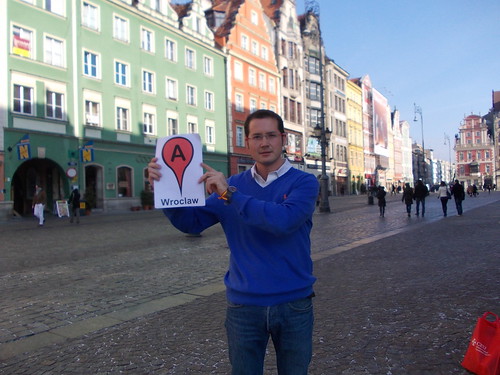
Cześć! (Hello in Polish Language)
My experience in the University of Wroclaw. 9th-15th of February 2012
The process of choosing the University was very easy, finally I decided to go to the University of Wroclaw. Then they were very receptive. Unfortunately our airport does not have many terminals and find a direct flight was impossible. Moreover, I caught a train, it's not fast but is cheap. At the end, the trip is in whole day to go and another day to return. With flights impressive how easy is to move 2,500 kilometers.
The weather is cold, it snowed 3 day of the 6 days. The city with light has a different perspective. People do not walk in the cold in the streets, at sunset the image is Mysterious.
The first impact is undoubtely the language, you get to change the chip and throw into the "pool". One of the most important lessons that I take is the necessity and importance to improve my English. For me it was very satisfying to have a conversation with people from another culture.
My first contact with the University was on Thursday 9 February. I must admit I was nervous because I didn´t know how it would be everything. Barbara SKAŁACKA-HARROLD,vice-director, LLP - ERASMUS Institutional Co-ordinator, bilateral agreements, Erasmus staff mobility. (International Office - Room 109 ) was responsible for cordinating all of my time there. She was with me the whole first day was tasked to introduce and teach people across the university. She was really kind.
The building is beautiful, would be equivalent to our University in Valencia. Wrocław was a sad portrait of devastation and destruction after the war. The University was damaged by the war. In the 1960s construction work got off the ground. Monuments were restored and simultaneously new housing estates were extended and built.
Welcome and presentation of the University of Wroclaw

Sorry, I don't make Video explanations in english. But in the future, I'll do.
The origins of the Wroclaw Alma Mater are in the eighteenth century; however, efforts to create a university began in the sixteenth century. In 1638, a Jesuit school was created, which educated through the level of what would now be high school.
The history of the University of Wroclaw dates back to the 1702 when emperor Leopold I of Habsburg founded a small academy in Wroclaw which consisted in just two faculties:Philosophy and Theology. It was called Leopoldina after its founder.
Today the University of Wrocław is the largest university in the region and teaches over 40,000 students and around 1300 doctoral students at 10 Faculties. 9000 students graduate from the University every year. It's a city plenty of Erasmus students. It's the 3rd most important University in Poland.
I sincerely recommend to visit this nice university for a stay.
Leopoldina Hall
Aula Leopoldina is an example of art created by a combination of painting, sculpture, architecture and wood carving. Above the podium is a statue of the founder of the university. Above the professor's benches hang portraitss of persons distinguished for the university's creation and development.
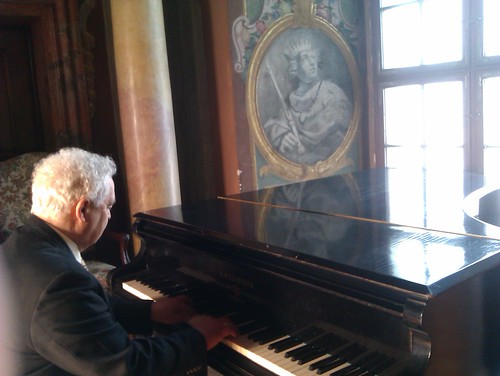
The Vice-Rector for Research and International Relations, Adam Jezierski, played the piano for us in a Leopoldina Hall. It was amazing. He's a very kind and clever man. It was a pleasure to met him. He accompanied us throughout the visit.
The imperial stairs lead up to the Mathematical Tower , also called the Astronomical Tower, where there has been an observatory since 1971. On the other hand, I recommend go to this tower because it offers a nice 360º degree view of the city. I recommend to visit Wroclaw Market Square. Wroclaw Market Square Rynek is the central hub of the city.
Wroclaw is the capital of Lower Silesia (Dolny Slask). It has a huge Old Town built on several islands connected by over 100 bridges. Apart from its unique location, Wroclaw amazes with its volume of Gothic, Baroque and Art Nouveau architecture. Several musical and theatre festivals, as well as its busy nightlife, attract innumerable visitors from all over Poland and abroad. Wroclaw's extremely complicated history, combining the cultural influences of Germany, Bohemia, Austria and Poland, has left its mark on the atmosphere of the city. It's a city opened to other cultures.
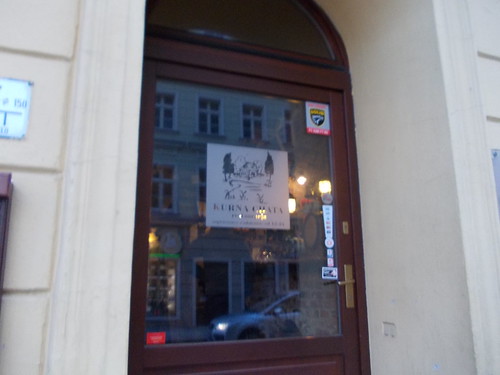
Polish cousine: Kurna Chata Typical Restaurant with typical foods. All erasmus students recommends me this place because you can eat typical food very cheap. I recommend to tast Cheese Soup / Gulash / onion soup and pork grill with potatoes.
Meeting with Wojciech Kaszuba
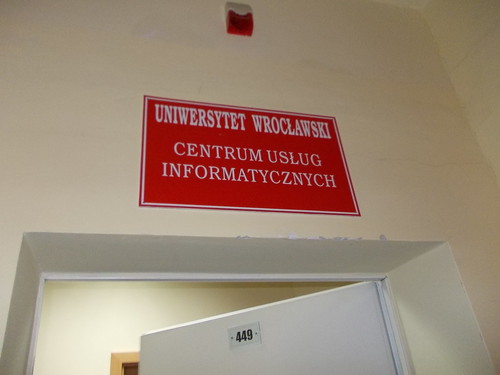
I visited WCSS. Wroclaw Centre for Networking and SuperComputing (WCSS) is an organizational unit of Politechnika Wroclawska (Wroclaw University of Technology, Poland). WCSS has ben operating since 1995 and employs about 40 people divide into three departments: High Perfomance Computing, Networks and Networks and Services.
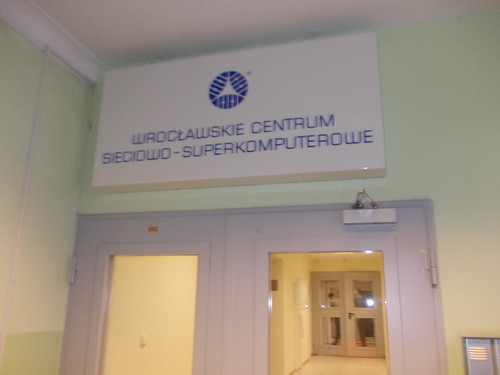
After this I had a Lunch-invitation by International Office in a very nice Restaurant in front of the University of Wroclaw. This restaurant have a very nice landscape, in summer you can see the University reflected on the river.
After lunch, Barbara made a Guided City Tour near the Cathedral of St. John the Baptist.
In the next video, you can see The lamplighter lighting a street lamp. On this tour, we saw "Cathedral Island" is like Small Vatican city (known locally as the Polish Vatican). Link to Archidiocese Website
The last day I had a Meeting with Andrzej Ostrowski Manager of the Promotion and Information Office, for me it was the most interesting day, because the trainee explanations were about my special area of interest: Information Technologies (IT).
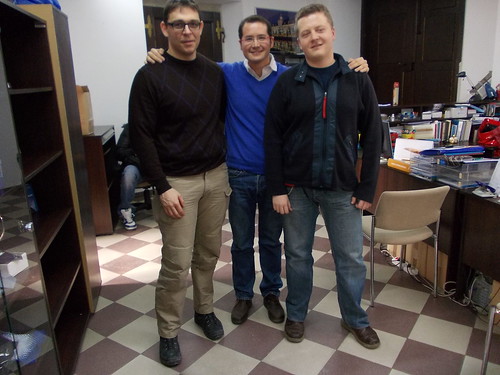
Andrezj spoke about the many problems they have had to make a uniform and consistent corporate image of the university. In this work you must work very quickly. Each Faculty has webmetrics. Scientist are a special group of people.
He said that Website was created 90's. Ten years withouth change.
Their Web is made and manage with Drupal (Content Management System).
He explained about the information Architecture. All sections and the main menu.
Drupal is connected with their human resources databases. They use Drupal Blog System. They work connecting RSS to suply social profiles. They don't work with google adwords.
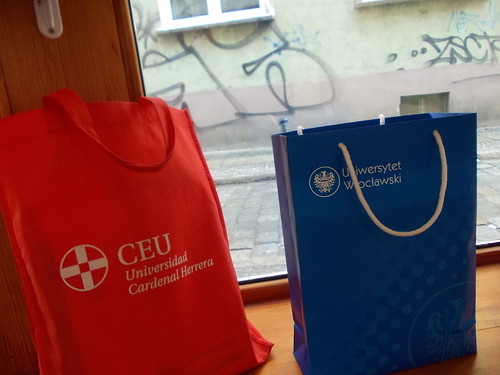
In conclussion, it has been a highly recommendable experience. It is very positive to discover new ways for working. Fluency in English is a growing need in our society. Internet and Social Media are platforms which becoming increasingly more important, this is a reality that is both our university like Wroclaw are very clear. For my part I think that generate relationships with other universities provides great value to the employees.
Dziękuję! (Thanks in polish language).
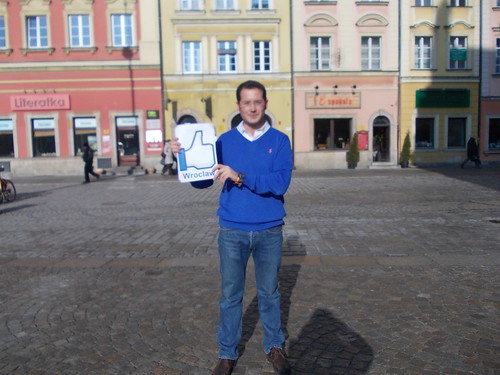
My Collections of Examples of Social Media Applications in Poland (Wroclaw)
QR-code
Related news:
- My experience in a International STAFF WEEK in Riga (LATVIA) 2011
- My experience in a INTERNATIONAL STAFF WEEK in Wroclaw (POLAND) 2012
- My experience in Social Media Week in Valencia CEU-UCH University 2013
- My experience in a International STAFF WEEK in Vilnius (VGTU) 2014
- My experience in a INTERNATIONAL STAFF WEEK in Tampere (Finland) 2015
- My experience in a International Week at Keele University (UK- England 2016)
- My experience in a International Week at Sheffield Hallam University (UK- England 2017)
- Mi experiencia en la Universidad de HIROSHIMA JAPÓN 2018
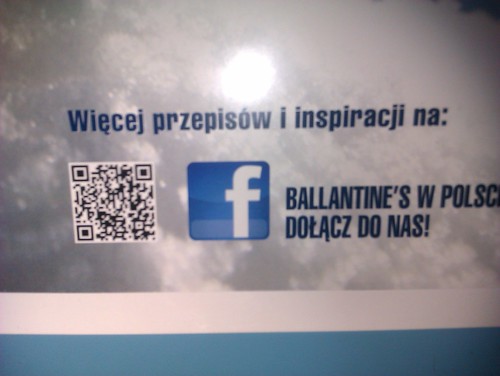
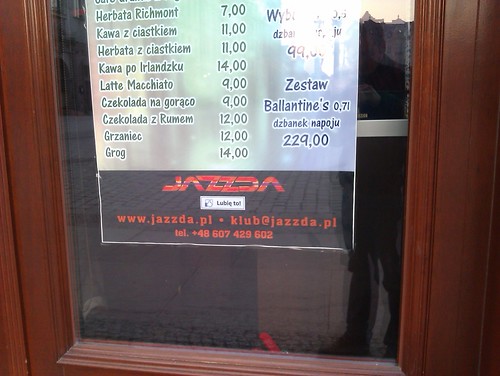
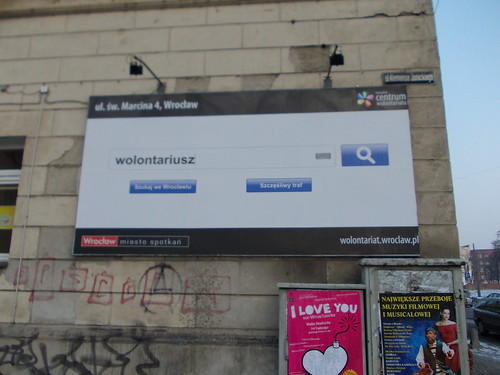
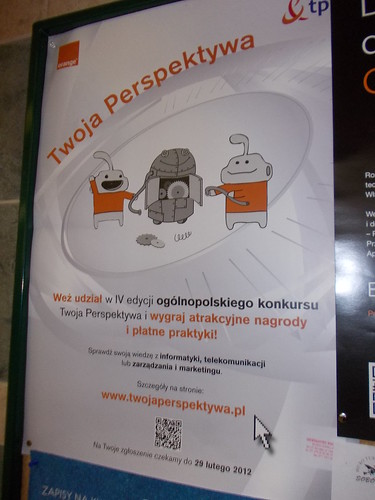
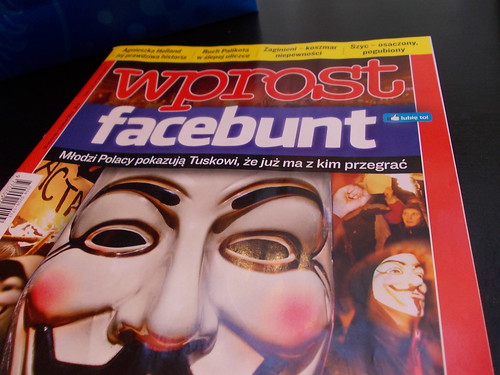









.jpg)






Valoro mucho tus comentarios